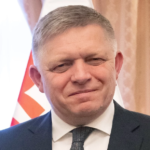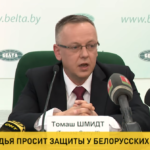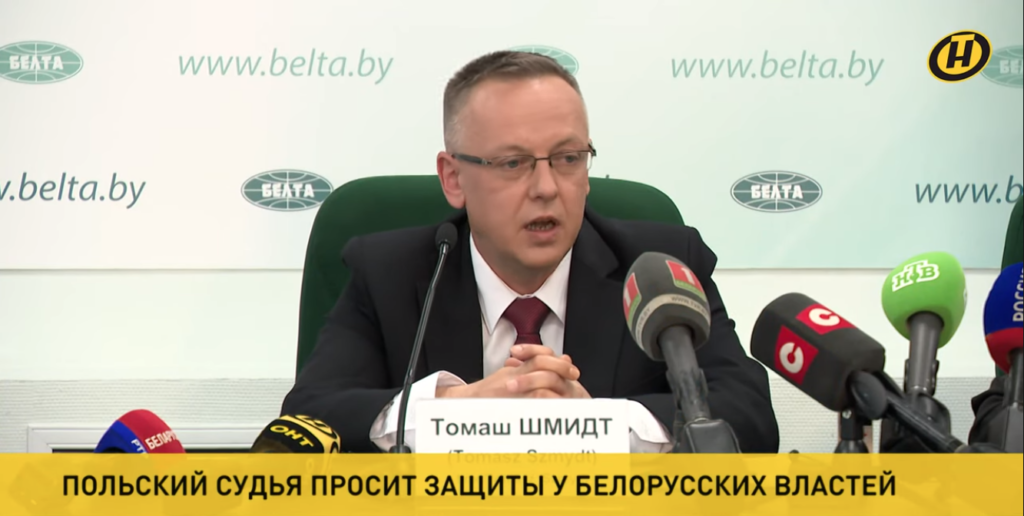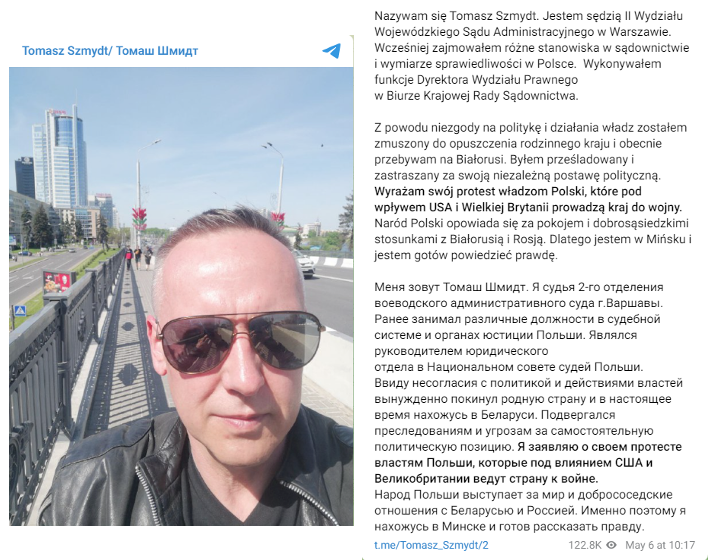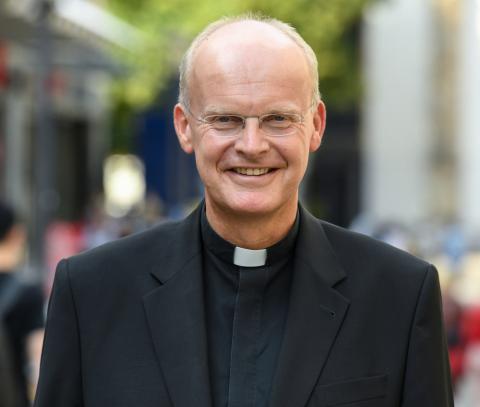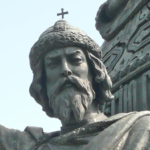I keep returning to the same topic again and again. Yes, reporters and journalists, analysts and politicians love dealing with petty problems of whatever is happening, has happened or is going to happen. They immerse themselves and their minds in what was said by whom and what significance is to be assigned to this or that gesture. They love discussing the legal questions like whether Volodymyr Zelenskyy is still Ukraine’s legitimate president – his term ran out on 20th of May – or how and when the war in Ukraine will end. They are currently speculating about the outcome of the elections that are planned in June for the European Union and – how otherwise! – are afraid (who told them to be afraid?) of the “far right” winning too much of the vote. They set their sights on Trump and Biden and indulge in the same speculation about the outcome of American presidential election that is to take place later this year. Lots and lots of items of petty information. The term information noise is just the right one here. But why listen to all this petty news and these petty analyses every single day? All we need to do is to step back and see the broad picture. All we need to do is to understand the whole, the overriding trends, the phenomena as such. What are these phenomena? What are these general trends? What does the big picture look like?
We are having a big war in the territory that once was a part of the Soviet Union: in Ukraine. We have been having a number of local wars in the Caucasus, that is to say, also in the territory that once belonged to the Soviet Union. We have had successful or attempted coups d’état in Belarus, Kazakhstan, Georgia and elsewhere, also in the territories that were once parts of the Soviet Union. We have been told that hundreds of people have been killed as a result, still more have been maimed, displaced, driven into poverty. We have been witnessing heightened tensions between the West and Russia, with frequent military exercises and an increasingly frequent talk about the use of nuclear weapons. Now, these are the big, hard facts. What do we do with them?
If we view them as subsequent pages of the history book that is being written and has been written since the dawn of mankind, if we – as said above – let the petty facts and data capture our attention, if we – what’s even worse – assimilate and internalize the data for the sake of assimilating and internalizing them without drawing inferences, then we are wasting our time and life energy. We behave like students who attend lectures and classes and even try to memorize and practise things but who fail to grasp the overall picture, the workings of the mechanism; students who never really let the message of the overall body of lectures, classes and handbooks sink in and work its way into their awareness.
Take a step back, rid yourself of all the petty data and useless comments of the analysts or experts. Instead, ask yourselves a few questions and try answering them.
One. Would all those wars have taken place if the Soviet Union still existed? Would all those hundreds of thousands of people have been killed, maimed or driven into poverty if the Soviet Union continued to exist today?
Two. Would the West have ever dreamed about sending troops – mercenaries – military equipment inside the Soviet Union? Would the West have interfered so rabidly with the Soviet Union if it had existed till the present day?
Would Ukraine have lost at least 50% of its population, most of its industry; would Ukraine lost (sold) much of its fertile land to Western companies had the Soviet Union existed till this day? Would the Baltic States have become depopulated as they are (being) depopulated now, had the Soviet Union existed till this day?
Three. Would the still existing Soviet Union be a communist country or, rather, would it have gone the way of China, where capitalism is the base while communism is its ideological superstructure? In other words, is it not true that the Soviet Union, if it continued to exist today, would be communist but in name?
Four. Somehow anachronistically, but still: drawing a lesson from the fate of the post-Soviet area and era, if you have had decisive power before 1991 in the Soviet Union, would you have ever, EVER surrendered to the West? Would you have ever, EVER trusted the West? Would you have ever, EVER laid down your arms to the West?
Five. Again, having done your homework concerning the years 1991-2021, having been attentive during the classes and lectures delivered within the said period, would you ever want to become a part of the global market and manufacturing, doing away with some of your industries? Or, rather, you’d cling to autarchy as much is it is feasible and never relied on one global system of makings payments? As we know it has transpired that by letting your country become a part of the global system, you render your nation very much vulnerable: they – THEY – can cut you off from your own money and they – THEY – can try to starve you out in case you displease THEM.
Six. Do you still believe in free market economy, learning now and again that the United States – an alleged paragon of free market economy, of free economic competition and all those liberties – is going berserk imposing tariffs on Chinese products because they happen to be… better and cheaper? Hey, where do we have this lauded free market economy? Ah yes, we can have it so long as it serves the West’s purposes! The moment it dos not, we cannot have it. But of course, Chinese products are not blocked because they are better or cheaper – far be it from it! Chinese products are blocked because they have been manufactured under the conditions violating the human rights, and the like clap-trap!
By the way, if tariffs are imposed by the United States and the European Union because they protect respectively the American and European markets, why then tariffs among particular European states are viewed as detrimental? Would they not protect national economies? Or national economies are not worth protecting?
Seven. Being a responsible leader of any country, a patriot of your nation, or simply a good steward of the national economy and the territory that has been entrusted to you, and the security of your people, with the knowledge of the last thirty or so years, would you have ever, EVER signed those migration pacts? As can be seen, they only serve the purpose of diluting the local populations and ultimately destroying nations and states. Why talk about yet another batch of boats reaching this or that part of the European coast? They are coming here EVERY DAY. Why getting excited about it? It’s the huge problem that is important and this is: European and national politics have been hijacked by the powers that be and if you don’t like what is happening to your country – nation – you need to strike at the decision centre. Why in heaven’s name do they do it to us?
Eight. I know, this argument is repeated here and there, but I cannot refrain from rolling it out here again: war in Ukraine erupted because Russia could not tolerate Ukraine as a member of NATO or as a country used by NATO against Russia. Now Russia is of course to blame for the unprovoked aggression, is it not? But hey, if Mexico or Canada were to join a military alliance with Russia or China, if Mexico or Canada held joint military exercises with Russia or China, wouldn’t the United States invade Mexico? Would this invasion – aggression – be unprovoked?
Nine.
[a] Why are im-migrants to the Western world stubbornly referred to as _migrants as if they were to leave the West one of these days like migratory birds? Why is this misnomer applied and why do you – yes, you, my reader – recklessly, thoughtlessly repeat this term while talking about people who have arrived in the Old Continent or the United States to stay?
[b] The powers that be keep telling us that immigrants enrich each European country or the United States or Canada. Hang on for a moment: if the immigrants enrich us, by the same token they impoverish the countries they have left! Have you ever thought about it? So, we keep helping the poor countries by… impoverishing them! Wow!
[c] The powers that be reassure us that immigrants will assimilate and integrate and in the same breath they sermonize about the many human rights some of which guarantee anybody and everybody that his ethnicity, religion, customs and language be inviolable, inalienable, sacrosanct! How then are they going to assimilate and integrate?
[d] The immigrants keep coming to the Western world because of economic reasons, sometimes political ones. They are supposed to be loyal, good, law-abiding citizens in their adoptive countries. Hang on, again! Once such individuals left their own countries – nations – in search of a better life, they will not give two hoots about leaving the adoptive country the moment they figure out there is a better life somewhere else. What kind of loyalty is that? What civic virtues are these? How valuable are they?
Ten. If uniting nations – countries – is a good thing, why then most people approve of the dissolution of the Soviet Union, Czechoslovakia and Yugoslavia? Why did the nations of the three political entities mentioned in the foregoing sentence seek to separate themselves from the union on day one only to apply for membership in another union on day two? Consider, Czechs and Slovaks did not want to live within the same political structure known as Czechoslovakia, but they BOTH entered the European Union and so ARE members of THE SAME political structure. Where’s the sense? The same is true of the nations of former Yugoslavia: they divorced in order to… marry again within a broader family. Why didn’t German Lands divorce prior to collectively joining the European Union?
Eleven. So long as the Soviet Union existed, its citizens were presented to the world as homogeneous people who may have spoken different languages or observed different traditions but who basically were Soviet people. The same was true of Yugoslavia. The country may have been made up of Slovenes, Croats, Serbs; of Catholics, Orthodox Christians and Muslims, but all in all they were known as Yugoslavians. Now it took just a few minutes (from a historical perspective) for the many nations who allegedly were not all that important to be reborn with intense national sentiments and to be at each other’s throat. The BIG question is: why does it not occur to the EU commissioners that precisely the same fate awaits this political superstructure? Why does it not occur to them that by importing Third World people by the millions they add fuel to the fire of the future civil war rampaging across the continent? Whence this hubris? The feuds between particular ex-Soviet republics and the hostilities between ex-Yugoslavian republics are within human memory! What amount of hubris does it take to make the managers of the world and to make common people think that this time things are going to be different? We have assigned ourselves the scientific description of being homines sapientes – reasonable men. Where is our reason? Where is our reasoning?
Twelve. If Ukraine had not flirted with the Western military, if it had not provoked Russia, wouldn’t it have now ALL its 1991 territory INTACT? Even more interesting: if Ukraine had had a “dictator” like Belarus has had and continues to have, would Ukraine have experienced [a] war, [b] loss of territory, [c] loss of lives, [d] massive emigration (read depopulation), and [e] destruction of its infrastructure? Answer the following question with all sincerity you can muster: would you rather have been a citizen of Ukraine or Belarus for the last twenty or so years? Would you rather have a string of “democratic” presidents and war or a “dictator” and peace? I dare you to answer!


